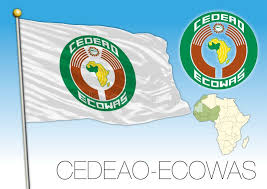ECOWAS, the AES, Misrepresentation of facts and Regional Future: A Response to David Hundeyin Unsubstantiated Narratives
By Raymond Enoch
David Hundeyin’s recent assumptions as an attempt to critique the ECOWAS presents an oversimplified and defective view of West Africa’s complex geopolitical landscape. While his arguments resonate with perceived frustrations over the region’s governance and security challenges, such views lack historical depth and a fair assessment of ECOWAS’s role as an institution.
Let us look at the issues in perspective and try to make the realities of the fundamental realities on the ground now given such a subjective views.

ECOWAS: A History of Regional Integration and Stability
Since its founding in 1975, ECOWAS has been instrumental in fostering economic cooperation, security, and political stability across its 15 member states. Its trade liberalization policies, the ECOWAS passport, and regional infrastructure projects have enhanced mobility, commerce, and development. More significantly, ECOWAS has played a central role in peacekeeping missions in Liberia, Sierra Leone, The Gambia, and Mali—interventions that have prevented further destabilization.
To dismiss the institution of ECOWAS ” Big Elephant” not capability of doing anything to enhance regional security by David Hundeyin, then is to fail to recognize the prominent role that ECOMOG intervention in Liberia and Sierra Leone which was not only” symbolic but actually help stabilize the conflict” Thees clear outcome of ECOWAS role is undeniable and unbearable between 2000-2003. Hundeyin should therefore cross check his facts and history.
Hundeyin’s criticism disregards the fact that ECOWAS like any other governance institution, acts strategic and responds to issues considering it’s strategic mandate and also has it’s own challenges , but certainly it is not a powerless institution either as he may have insinuated.
ECOWAS mandate includes upholding democratic governance, which explains its firm stance on unconstitutional power seizures that has happened and rocked Niger, Burkina Faso and Mali. The Institution is often caught in a historical dilemma: which is act decisively and be accused of interference in sovereign countries internal affairs, or remain passive and be blamed for negligence which underscores why the likes of Hundeyin could think otherwise without looking at underlying perspectives.
The ECOWAS-AES : A Breakaway or a Realignment?
The emergence of the Alliance of Sahel States (AES) in 2023—comprising Mali, Burkina Faso, and Niger—was not merely an act of defiance against ECOWAS but a reaction to prolonged security crises and governance struggles in those countries .Mark it those are internal dynamics in those countries that have its roots and which explains military incursions. David Hundeyin did not explain the possible Wagner Groups presence in ” Mali and Niger along with the increasing ties with Russia and Turkey. This he tried to explain by talking about” Foreign incursions” but became economical with wotds.
These nations, grappling with jihadist insurgencies, argue that ECOWAS has failed to provide sufficient support. However, their withdrawal raises fundamental questions:.
It must’ be stated here that AES Countries despite their withdrawal from ECOWAS, their ties hitherto still remains strong as it’s not yet a straightaway breaking away as he seems to have portrayed.
Security vs. Sovereignty: ECOWAS imposed sanctions in response to military coups, reinforcing its commitment to democratic governance. Yet, AES states perceive these measures as external pressure rather than regional solidarity.
Geopolitical Shifts: With growing ties between AES nations and non-Western powers, the rift signals a shift in influence, challenging the traditional order of West African diplomacy.
The withdrawal of three key nations threatens ECOWAS unity, potentially could weaken economic cooperation and security However, it could be a step to strengthen the instruction too.
The ECOWAS-AES split is one of the most significant fractures in West African geopolitics. However, dismissing ECOWAS as ineffective, as Hundeyin seem to be suggesting, ignores the broader picture. ECOWAS must reassess its strategies, particularly in addressing security concerns in the Sahel. Rather than fueling division, thought leaders should advocate for constructive reforms that strengthen regional institutions.
Whose interests does Hundeyin truly serve? If the goal is Africa’s progress, the focus should be on solutions, not selective subjective outrage. ECOWAS is at a crossroads—its response will define the future of West African unity and stability.
The current action of ECOWAS transition process since January 29th 2025, represent the effort living in the realities of the dream of the founding fathers of ECOWAS, which is open dialogue and creating opportunities for which the region could reinforce its unity and economic prosperity through collective transformation.
David Hundeyin seem to be caught in what experts describes as “Misinformation and Fake News” in the practice of information dissemination. ECOWAS Vision 2050 provides a roadmap for long-term stability, integration, and transformation. It must said here without bias that narrative shaping such as his is not an event but a process—” which ” evolves through sustained engagement, deliberate action, and strategic communication. ECOWAS does not merely react to narratives; it engineers them to influence the future. This forward-looking approach and we must State here that ECOWAS remains not just a peacekeeping force but a leading architect of West Africa’s socio-political and economic future hence is ECOWARN tool is being integrated into regional security strategies to demonstrates how ECOWAS is shifting from reactive crisis management to proactive stability shaping.








